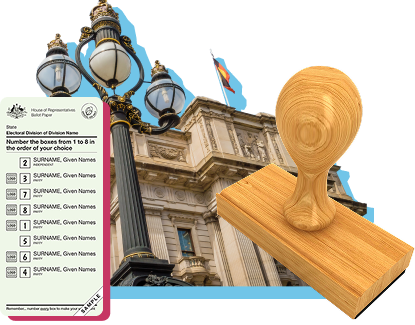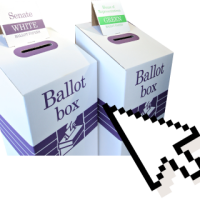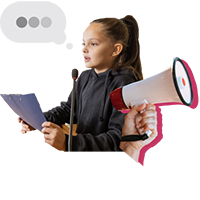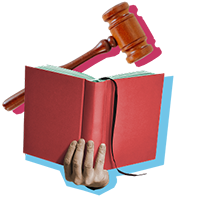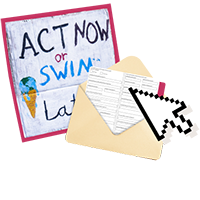
Young people can play an important role in influencing politics, including by:
- sharing and discussing their views about political topics with friends, family and their community
- campaigning for a political candidate that aligns with their views, values and beliefs
- voting in elections (after turning 18 years old).
Why are politics important to young people?
Governments make decisions that affect young people and their future. They can be smaller decisions, like building a new park, or major decisions that impact global issues like climate change.
What are politics?
Politics are activities that influence the policies, decisions and actions of government.
Your vote is a tool that you can use to influence elections.
What is an election?
An election is when people vote to choose leaders that will represent them to make decisions and laws. In Victoria and Australia elected representatives become Members of Parliament or local Councillors.
What is policy?
A policy is a plan that a government makes about how they will run things and make decisions.
What are the levels of government?
In Australia, we have three tiers of government: local, state and federal. It can be hard to work out who does what!
- Local governments: Also known as local councils or shires, are responsible for delivering services in a local area like parks, leisure centres and waste disposal.
- State governments: Create laws that affect all people living in a state, and they are responsible for decisions on education, hospitals, transport, and much more.
- The Federal Government: Creates laws that affect all Australians, and they are responsible for decision on defence, immigration, Medicare and much more.
Local, state and federal governments will often work together to make decisions to solve issues. For example, a state road may be repaired by a local government which is funded by the federal government.
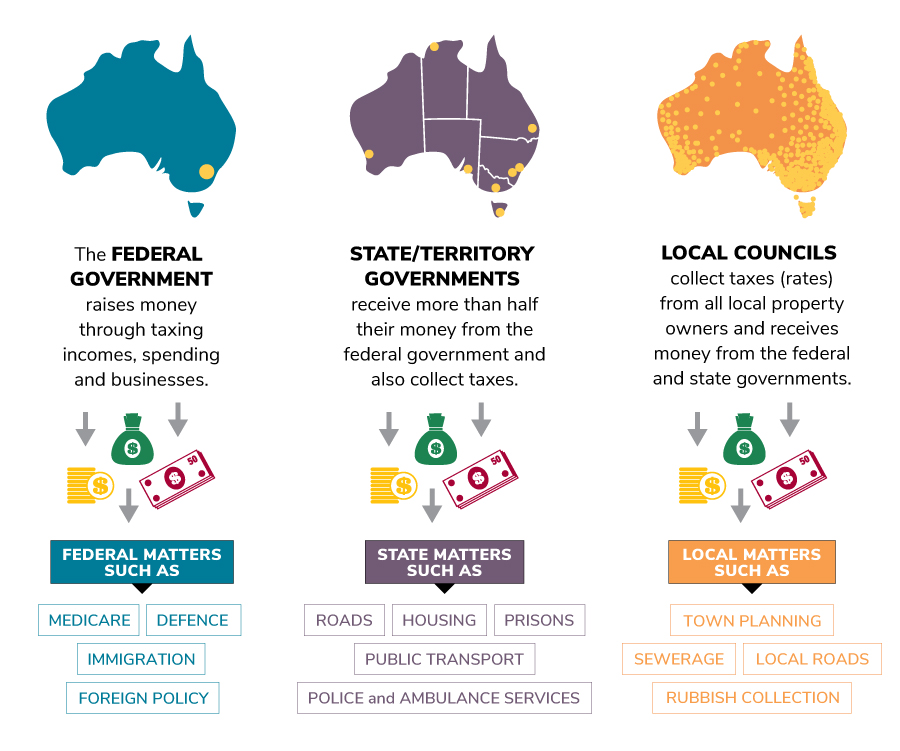
For more information on the three tiers of Australian Government, go to the Parliamentary Education Office.
What is Cabinet?
Cabinet is a group of senior members of the government including the Prime Minister or Premier. They decide on government policy and make key decisions.
What is an electorate?
An electorate is an area that is represented by a Member of Parliament. Voters that live in each electorate vote to choose someone to represent them in Parliament.
What is a coalition?
A coalition forms when two or more political parties join to form a government. By joining together, a coalition increases their number of representatives in Parliament, which can help to form government.
How is the Australian Government formed?
Australia is a representative democracy. This means people vote to elect representatives to be Members of Parliament and make decisions on their behalf.
Your local representative may belong to a political party or run as an independent (meaning they are not a member of a party).
To form government, a political party (or coalition of parties) must win a majority of seats in the House of Representatives. The leader of the winning party (or coalition) becomes the Prime Minister – the head of government.
The Prime Minister chooses people from their party to join the Cabinet. The Cabinet is a team of leaders who help make decisions and carry out policies. Each Cabinet member has a specific role, and their title tells us what they are responsible for. For example, the Treasurer is responsible for managing economic policy and the Attorney General provides legal advice to the government and is responsible for ensuring the law is applied fairly.
To find your electorate and learn about the candidates running in your area, go to the AEC's Find my electorate page.
How does the Australian Parliament work?
The Australian Parliament debates important decisions and makes laws for the whole country.
It has two parts:
- The Lower House, known as the House of Representatives, is where Members of Parliament represent different areas of the country (electorates) to create and discuss laws.
- The Upper House, known as the Senate, is where Senators elected to represent a state or territory, review these laws to make sure they are fair.
Together, the two houses represent the Australian people and keep the country running.
The Federal Government has more information on the How our government works page.
How is the Victorian Government formed?
The electoral system in Victoria shares many similarities with the national system, with the leader of the winning party (or coalition) becoming the Premier – the head of the Victorian Government.
How does the Victorian Parliament work?
The Victorian Parliament shares many similarities with the Australian Parliament. It also debates important decisions and makes laws only for the state of Victoria.
Like the federal Parliament, it also has two houses:
- The Lower House, known as the Legislative Assembly, is where Victorian representatives from different areas of the state (electorates) create and discuss laws.
- The Upper House, known as the Legislative Council is where Victorian representatives from wider geographical regions across the state check the laws made by the Assembly to make sure they are fair for everyone in Victoria.
How are local governments formed in Victoria?
There are 79 local government areas (LGAs) in Victoria, typically called councils, municipalities or shires.
Local governments are made up of councillors who are elected by their local communities every 4 years. Once the councillors have been elected, they elect a mayor or president to be the leader for the council.
Deciding how to vote
In Australia, you can vote for whoever you want. When you vote, you can choose the person you think will best represent you and help the country the most.
One way to find a political party that has similar views to you is the ABC Vote Compass. This online tool asks you questions about political issues and shows you which party may most closely align with your views.
Remember to always think carefully about where you get your information and be wary of bias in how news and politics is reported or misinformation!
A political party may never 100% align with your values and that's ok – it's about choosing who you believe will do the best job at helping the country.
How do I vote?
During elections, there are different ways to vote. Most people will vote on election day but there are other options such as postal voting or early voting centres.
For more information about voting methods, visit the AEC's ways to vote page.
To vote in elections you must be:
- enrolled to vote
- at least 18 years old.
Find out more on YouthNav’s enrolling to vote page.
How do our elections work?
There are two forms of voting used in our state and federal elections:
- Preferential voting in the lower house of Parliament
- Proportional representation in the upper house of Parliament
Check out the Victorian Electoral Commission's videos explaining how preferential voting and proportional representation work.
In Australia, we use the preferential system to vote in local, state and federal elections. In this system, you choose candidates on a ballot paper in the order of your preference.
If your preferred candidate cannot get enough votes to win, your vote will count for your next preferred candidate.
Make sure to fill out your ballot paper correctly or your vote may not be counted. The Australian Electoral Commission has an online interactive practice voting tool to help you make sure you know how to complete your ballot paper correctly.
How do I have respectful conversations about politics?
Talking about politics with friends, family and people in your community can support you to share your understanding or learn about different issues or values.
Sometimes, talking about politics can be complex or uncomfortable. It is important to always be respectful.
- Be open minded to different opinions: Don’t just assume you are right. There may be things you have overlooked or should consider. Be curious and ask questions if you are unsure what the other person means.
- Actively listen to what the other person is saying: We all have a right to be heard in a conversation. Active listening shows that you are interested in what the other person is saying.
- Keep the conversation respectful: Some political issues can be controversial. Always approach conversations with care. You should never shout at or insult someone. Do not assume someone has bad intentions or character if they disagree with you.
Remember:
- The three levels of government (local, state and federal) can have a big impact on your life.
- You can influence outcomes by voting in elections (if you are over 18).
- Political parties are groups of people who want to run the country in a similar way and who promise certain actions when they are elected.
- There are two forms of voting in state and federal elections: preferential voting and proportional representation.
- State and federal governments are formed by the political party (or coalition) that has more than half of the seats in the lower house.
- When talking about politics it’s best to be respectful, listen carefully and have an open mind.
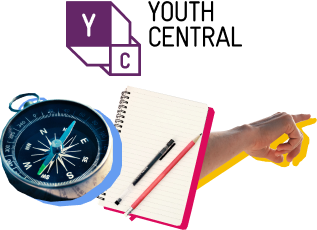
Ready to put your skills into practice?
Get comprehensive guidance on voting and elections at Youth Central.


